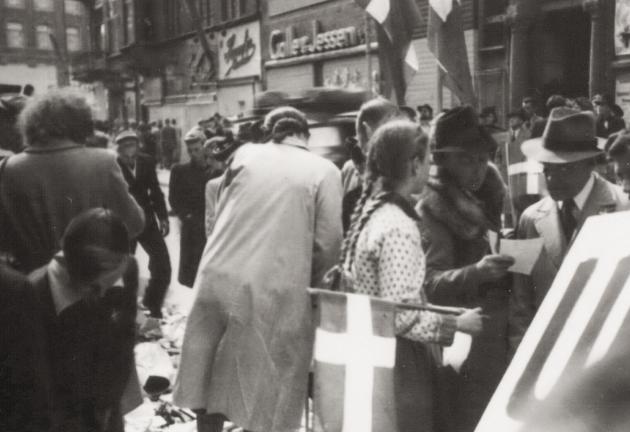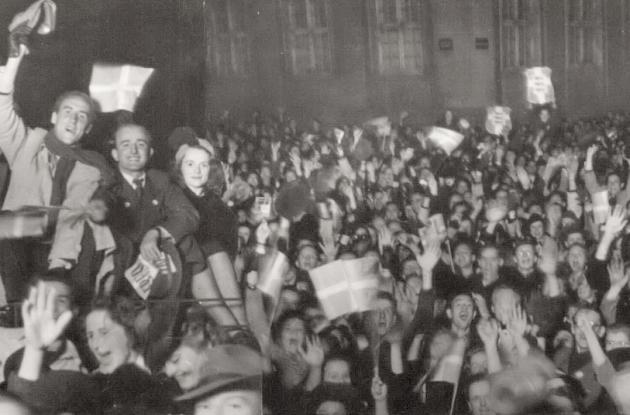The message of liberation
In the middle of the usual news broadcast on 4 May at 8:35 pm., the message that the Danes had been waiting for was heard. The Germans had withdrawn, and Denmark was free again after 5 years.
The message of liberation on 4 May 1945
It started as a regular broadcast from the BBC. One of those that thousands of Danes had gotten used to tuning into to get news during the war that had not been through the German censorship. Johannes G. Sørensen reads the news at the Danish newsdesk at the BBC's premises in London. But six minutes into the broadcast, while the microphone is off for a moment, colleague Flemming Barfoed tells Johannes G. Sørensen that the German troops in Denmark have finally surrendered. Sørensen turns on the microphone, and then it comes. The message that is familiar to many Danes:
At this moment it is announced that Montgomery has stated that the German troops in Holland, Northwest Germany and Denmark have surrendered.
Listening to the BBC was forbidden, but it did not stop a wildly euphoric mood from spreading across the country. The people poured out into the streets, where they used the hated blackout curtains to build bonfires.
The dark years were over. Now came summer and freedom.

Photo: Ophav ukendt
In the collection of sound and music, we have different variants of the message of liberation. Some contain only the moments after Sørensen turned on the microphone again, while others have the entire news broadcast as it was broadcast on 4 May 1945 at 8:30 pm. We bring you the full broadcast. You can hear the liberating words approximately four minutes into the recording.
The Danes got their news during the war from radio and newspapers. The media was under censorship, but virtually all households had a radio and subscribed to a daily newspaper. As the Germans tightened their grip on radio news broadcasts, and Radioavisen became entirely German in 1944, many switched to listening to the BBC and Swedish Radio, which were not subject to German censorship. That is why so many people sat with their ears pressed to the radio when Johannes G. Sørensen could announce that Denmark was free once again.
